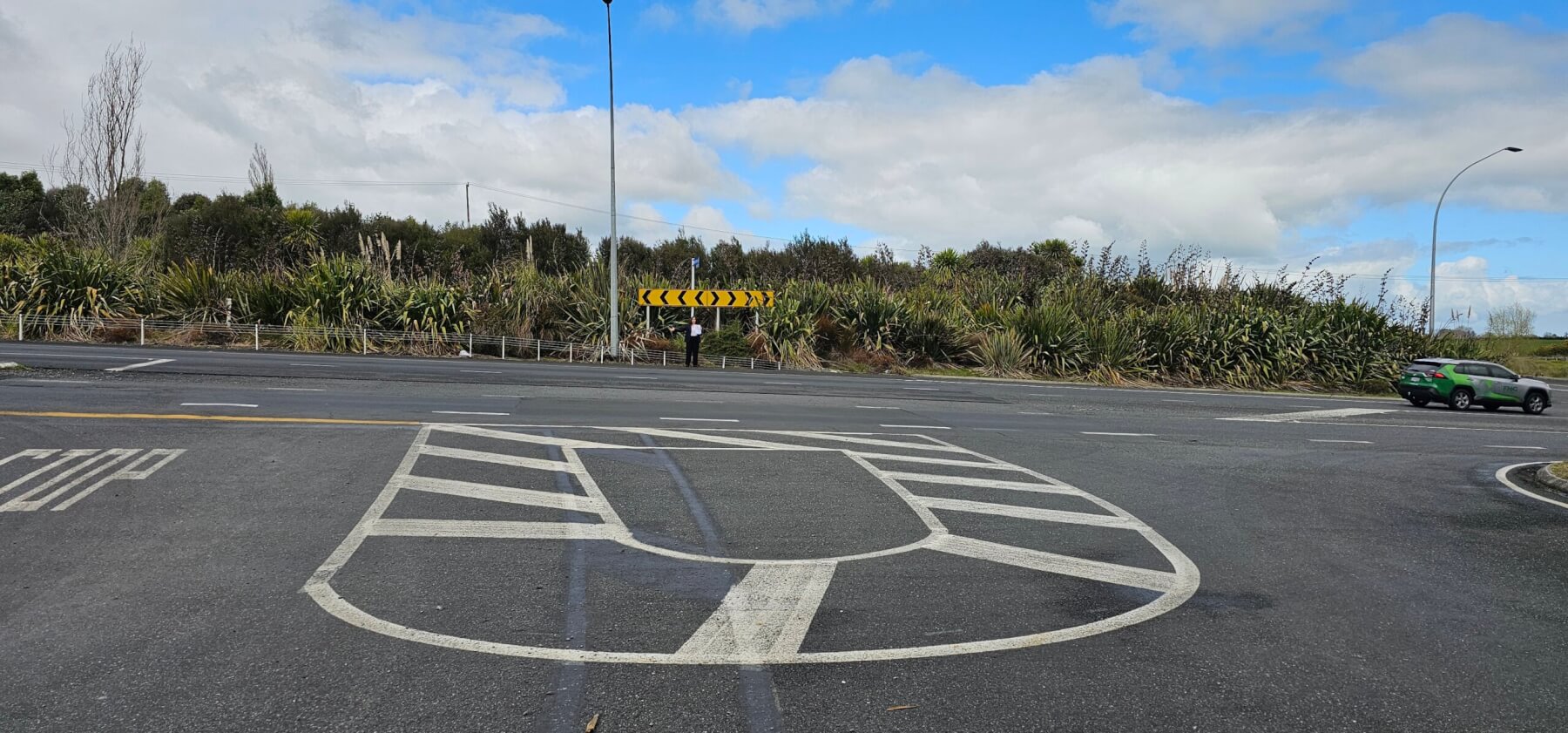
Letters to the Editor
Big bang theories
My wife and I have heard a loud explosion in the night on at least two occasions in the past year. I see there has been some Facebook commentary where many other people heard an explosion one evening around midnight back in July. No one knows what caused the explosion and there were no sirens afterwards. Everyone was guessing where the explosion happened.
We live near the town pool and I wondered if the explosions were either rural or caused by road maintenance crews, or in a quarry. I thought if you published this letter then we may get some answers. It must be very concerning for the many elderly people who heard the explosions
Terry McDowell
Cambridge
Quarry worry

The intersection of Tirau and Newcombe Rds where it is proposed to have a no right turn. Photo: Mary Anne Gill
Given Newcombe Road has had a lot of publicity recently I decided to take a look at it. I got a few surprises. First, the road is very short – about half a kilometre – and no exit.
Second, as you come off State Highway 1 to go to Cambridge past the golf course, there is a sign that says ‘trucks continue to the roundabout’. That means that the Transport Agency regards that turn as unsafe for trucks to turn right into Newcombe Road. How much more unsafe will it be if 100 or more big trucks a day want to do that turn? If the prohibition on that turn continues, those trucks will need to go down to the round-about by the low level bridge and come back on the other side of the road in order to enter Newcombe Road.
Third, when I came to drive out of Newcombe Road and turn towards Cambridge I found that you did not have a long line of sight. I pulled out to cross the road and a car suddenly appeared. The other car did not need to slow down, but if I had been driving a large truck and trailer unit there is no way I would have got the vehicle across the road before the other vehicle arrived.
Roger Gordon is trying to get a decision that trucks from the quarry not be allowed to turn north as they come out of Newcombe Road. The reason was just to prevent those trucks from driving through the middle of Cambridge. But there is a very strong safety reason for that prohibition too. It would be hard to think of a more dangerous road to have 100 to 200 large trucks crossing it a day.
Peter Nicholl
Cambridge
Māori wards
Three candidates have thrown their hat into the ring for mayor in the Waipa District council elections. Each one of them, according to their manifesto, supports Māori wards. Really?
So are we to believe each candidate is ok with voting someone onto the council because of their race? When did we begin to stoop so low as a country that we think it is ok to treat certain sectors differently to others? We are slowly but surely departing from the true meaning of democracy where everyone is treated equally and has the same rights and duties.
Do the candidates truly believe their thinking on this? Or is it possible they have the same affliction as a growing number of New Zealanders who have either lost their tongue and are too afraid to speak out against this growing trend or worse, been brainwashed by the current ‘flavour of the month’ jargon used to justify it? Terms such as addressing the inequities, inequalities, having a place at the table, inclusion to name a few – all designed to trick the foolhardy into accepting a law that only serves to separate, segregate, and divide New Zealand.
I applaud David Seymour and the ACT Party for having the guts to bring this matter to the point of referendum. It forces a clear choice: either endorse representation by race or defend equal citizenship for every voter. A ‘yes’ vote institutionalises division and weakens the principle that public office should be won on merit and ideas, not race. A ‘no’ vote rejects racial preference and preserves democratic equality, where every voice carries the same weight. Which will you choose?
Gwynneth Purdie
Te Awamutu

Letters to Editor. Photo: Pixabay
Trash talk
Waipā district has over 400 rubbish bins. How many of these are dual rubbish and recycling bins? I would guess zero. Every small town I have been to recently, including around the South Island, have recycling bins attached. It shouldn’t be difficult for our council to embrace this concept. How about starting with a trial along Cambridge’s main road, and around both Lake Te Koo Utu and Victoria Square? Maybe council could even persuade the main fast-food perpetrators of rubbish to contribute to the cost.
Peter Russell
Cambridge
i-Site plea
As the seasons change so does our view of the town and countryside. Blossoms and bulbs aplenty to see and admire. They quite brighten our lives from the dullness of winter. Waipā Parks and reserves people from council have been busy with the town gardens, which look splendid, a great variety of colours. I make a plea to those chosen to sit around the council table to give thought and consideration to allow funding to go to i-Site. It is as vital to our town as the well-stocked and staffed library and both are appreciated.
Janet Smith
Te Pahu
Better or bankrupt?
As a retired chartered accountant, in my lifetime there have been two Prime Ministers, one National and one Labour, that had they carried on in office we would have seen central government heading towards bankruptcy, in other words, living beyond its means.
On the local scene in Waipā we are heading towards the same problem; if the rate ratio of debt to income continues the way it is now then by 2029 Waipā would reach its allowable debt ceiling, an equivalent to you and I having a 100 per cent mortgage and no longer having ownership of our home.
We need a council to have the financial knowledge and experience to arrest future rate increases greater than 15.5 per cent and decrease this increasing debt. The 2025-26 15.5 per cent rate rise in Waipā is the third highest in the country, whereas Whanganui, having realised their problem, has corrected their position, resulting in a 2.2 per cent increase, the lowest in the country.
So we need a high rate of voting and ensuring that we get the right councillors to tackle this serious problem and enable Waipa to move on with the region’s social and environmental issues and needs.
Peter Vonlanthen
Te Awamutu








